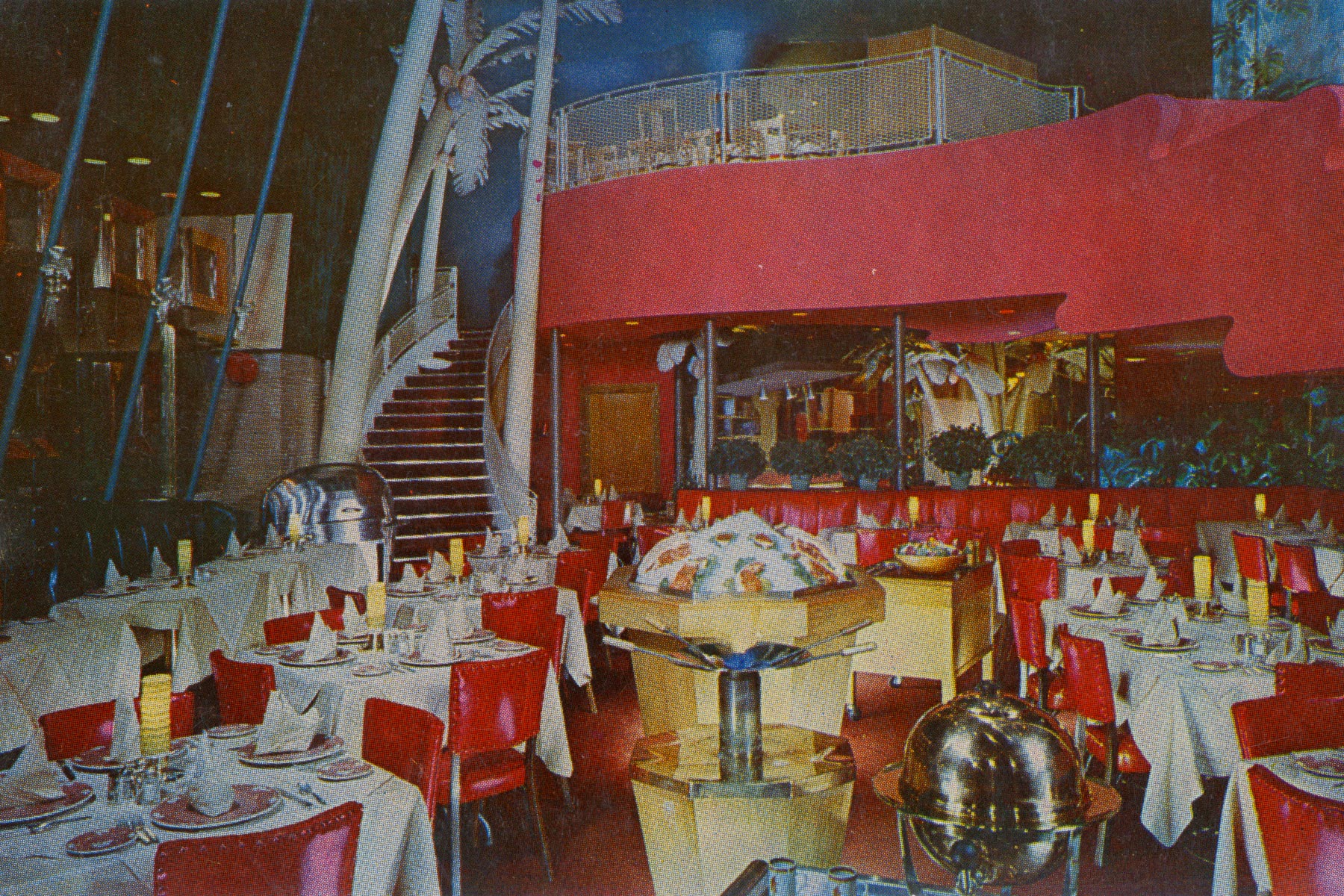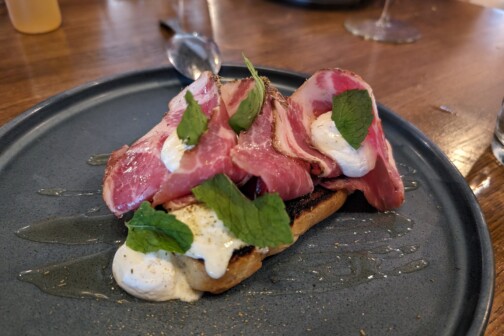Editor’s note: Amy Severson is a nut for Dallas restaurant history. She wrote a story for the October issue of D Magazine about the Town and Country, arguably the swankiest place in town in the late ’40s. Her story went online today. Here Amy explains how she got interested in the restaurant, and she shares a few details that didn’t make it into the story.
***
Prior to researching the Town and Country, I had already accumulated several of their postcards and a booklet called “The Story of Superiority,” by Nick DeGeorge Sr. It was a new style of restaurant for Dallas, feeding not just guests but also the society columns, like “Dallas After Dark,” with gossipy tidbits. Dallasites could follow the escapades of the glitterati, even if they couldn’t afford the lifestyle. Famous performers of the stage, screen, and music went to the Town and Country — not to perform but to dine side by side with guests. The legends of Hollywood and New York could be as close as the next table.
Research led to the (impulsive? addictive? definitely fulfilling) purchase of an old DeGeorge’s menu on Ebay. When I showed it to my husband, Sevy, he said, “DeGeorge? Nick DeGeorge?” Coincidentally Nick DeGeorge Jr. had been a regular at our restaurant, Sevy’s Grill. He’d moved to a northern suburb, too far to come in as often, but he generously agreed to an interview that lasted more than three hours.
Nick DeGeorge Jr. wanted the published story to be about his father, even when it came to his own achievements in the food and beverage industry. To be certain, he was a good son, working for the only person who represented his family for most of his first 25 years. He was chosen by Nick Sr. at age 3, adopted from an orphanage, and Nick Jr. honored his father’s choice with a deep loyalty. But it was always a question for Nick Jr., who he really was.
Dallas’ Italian legacy families were a tight community in 1937, the year Nick Jr. was born. Certainly a shared history and language played a part, but their parents and grandparents were scarred by the scorn of immigrant hostility when they arrived. They grouped together from fear of persecution and for protection. During the WWII era, many first- and second-generation immigrant families renounced their heritage to assure their neighbors that they were not the “enemy.”
With blond hair and blue eyes, Nick Jr. always thought he was not really Italian. Born to an unwed mother at Edna Gladney’s Texas Children’s Home, he was turned over to Hope Cottage. Nick Sr. arrived with W.O. Bankston one day, they met, and a few weeks later he reappeared to take Nick Jr. home. By year’s end, his parents had separated and the home was broken. Nick Jr. was left with his father and years later had no memories of Lucille to recall.
According to Nick Jr., a 1995 search for his birth certificate revealed his father to be Louis Ferrantello. Ferrantello would have been around 19 when Nick was born. The family owned a chicken business next to American Produce in the old Farmers Market, but Nick Jr. never met the man. He was told Ferrantello left the family business for a faster life with gambling, guns, money.
Ferrantello was reputed to own a gambling establishment on the county line between Dallas and Tarrant, and he was known in public as Chicken Louie. In 1952, he was under indictment in Travis County for gambling in Dallas and refused to answer over 100 questions. He earned a year in jail for contempt and a $1,000 fine for his silence.
In 1956, at age 38, Chicken Louie Ferrantello was killed at his bar, Antony’s Lounge, on Gaston, near Abrams. A 24-year-old woman claimed there was a struggle over a gun as she tried to kill herself. She shot him five times and herself once. The assistant manager on duty at Anthony’s the night of the shooting was Vic Ballas, who later bought the Town and Country.






